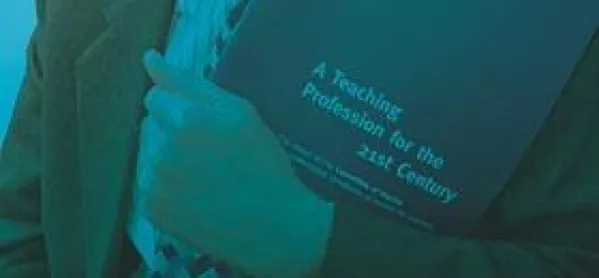Major reviews had minor impact in primary sector

Primary teachers in Scotland are not familiar with the content of the three major educational reports that have shaped their professional lives in recent years, according to new research by the depute head of an Edinburgh school.
Rehana Shanks, of Dean Park Primary, has been researching the reaction of primary staff to the three major reviews of the past decade - McCrone (2001), Donaldson (2010) and McCormac (2011).
Her initial research, to be presented at the Belmas (British Educational Leadership, Management and Administration Society) international education conference in Manchester this weekend, found very few primary teachers knew anything more about the reviews than the authors’ names and they did not understand the changes that were coming.
But when the teachers she surveyed - ranging from probationers to the recently retired - familiarised themselves with the reviews, the consensus was that they “undervalued” the profession. The exception was the McCrone report, which they felt had brought about “empowerment and professional recognition”.
Last year’s McCormac report into teacher employment, which re-examined the McCrone report of a decade earlier, and the Donaldson review of teacher education, published two years ago, were both about saving money, they felt.
Her paper, Shaping Educational Reform: Learning from research and practice, found: “All teachers were concerned with the current financial state of education and that the two more recent reforms were all about money rather than enhancing the teaching profession.
“Further, there was a concern arising from the McCormac review that the teacher’s role was to be extended outwith school and education to the role of social worker. The staff questioned felt it was an aspect of their job to be good role models and to support children pastorally within the school but were concerned around the social care issues raised in the review.”
The primary teachers involved in the research believed that the only real way to enhance educational outcomes was not through the professional review and development of teachers but by a change of social circumstances for children.
“Overall, it was felt that schools cannot compensate for society,” said the paper.
It added: “Teachers are not feeling that their profession is supported or valued. They feel the media is a major instigator of this and that the government should be more direct with the media rather than the media leading the direction for change.”
There was, however, strong support for the “re-registration” of teachers - or professional update. The new General Teaching Council for Scotland programme will see a five-yearly sharing of evidence to confirm that a teacher has maintained his or her professional skills and understanding. But there was a concern around possible sanctions and also that teachers in more affluent areas would find it easier to provide evidence of competence based on assessment results.
All the teachers who took part in the research disagreed with the dismantling of the chartered teacher programme. “All felt the chartered teacher (scheme) should not have been scrapped but should have been redrawn to include a set of responsibilities that came with it,” said Mrs Shanks.
She believes that many teachers are too focused on teaching and learning to have paid enough attention to the contents of the three reports, unless they had particularly energetic union representatives in their school, and called on them to try and find the time.
The Research
Rehana Shanks began her research into how well informed Scottish primary teachers were about educational reform last year. Most of the teachers who took part were based in the capital. She spoke to six different groups with an average of 10 teachers per group. Some were heads, some newly qualified teachers, some mid-career teachers and some recently retired.
Meet the capital’s masters of professional advancement
Staff at Dean Park Primary in Edinburgh can boast more academic credentials than many. Depute head Rehana Shanks has completed her master’s and is moving on to a PhD; two other teachers have started master’s courses; two are chartered teachers, and a further two were working towards chartered teacher status before the scheme was scrapped.
It is the ambition of education secretary Michael Russell that teaching become an all-master’s profession. Staff at Dean Park undertook further study because “a critical mass” had been created, said headteacher Colin Russell, who himself has a doctorate.
“Once a certain amount of people in school are interested in things like chartered teacher or studying for a master’s, everybody joins in,” he said.
A similar growth in interest took place when Mrs Shanks started an academic book group with six teachers towards the end of 2009. Three months on, 27 teachers had joined, observing each others’ lessons, meeting regularly, and thinking deeply about their own practice.
Dr Russell completed his own PhD, examining the effect of publishing the results of HMIE inspections, in 1993. Today he will become the first Scot and first primary head to chair the Belmas international education conference.
“It is a fantastic honour,” he said. “I refer to people like me as pracademics because the theory informs practice and vice versa.” He will also be presenting a paper to Belmas about “deep leadership”, arguing that it occurs when everybody in an organisation actively seeks to contribute to its advancement.
His paper essentially tells the story of Dean Park Primary, which has adopted a four-faculty system covering health, citizenship, ecology and enterprise to deliver the capacities of CfE.
emma.seith@tess.co.uk.
Original headline: Major reviews had a minor impact in the primary sector
Keep reading for just £1 per month
You've reached your limit of free articles this month. Subscribe for £1 per month for three months and get:
- Unlimited access to all Tes magazine content
- Exclusive subscriber-only stories
- Award-winning email newsletters



